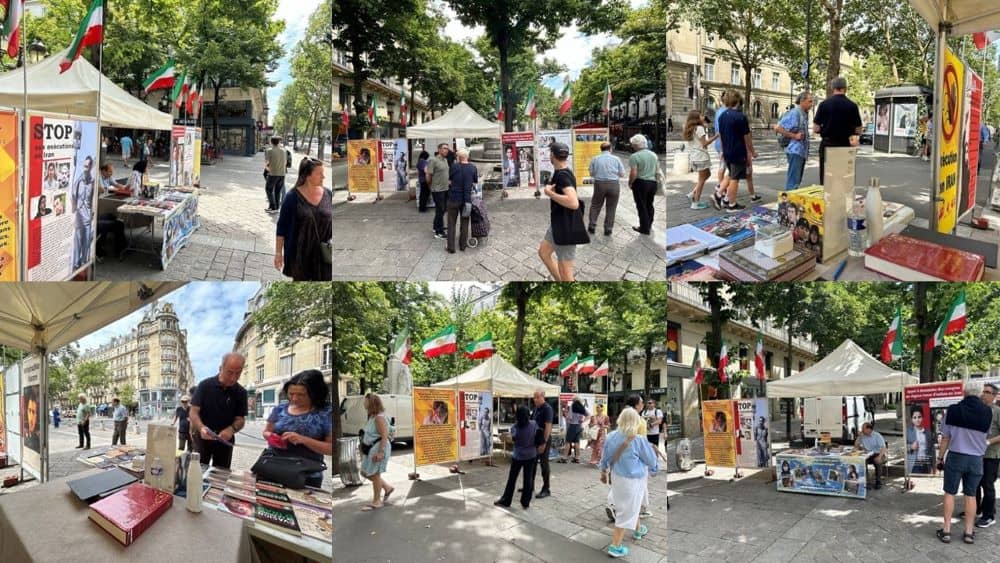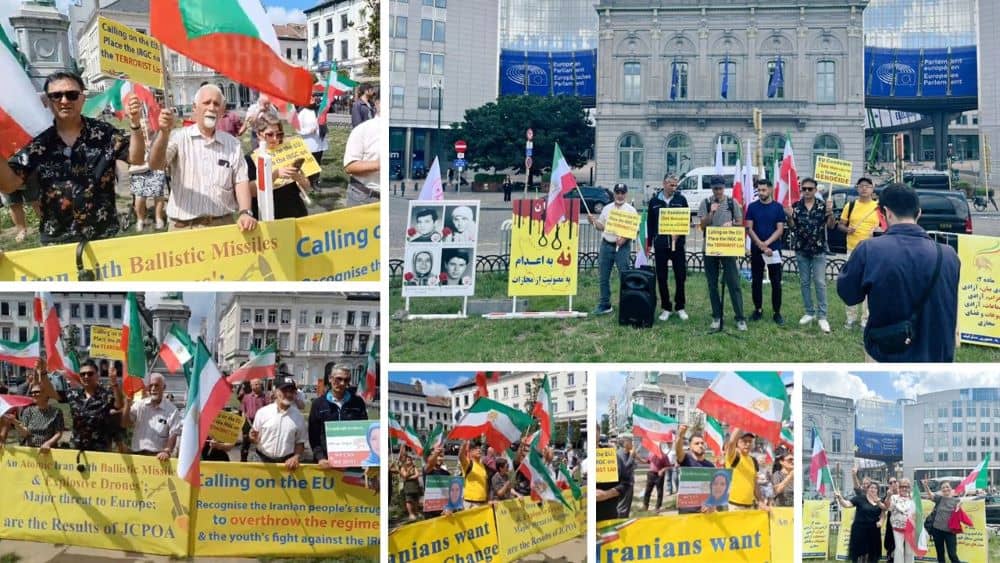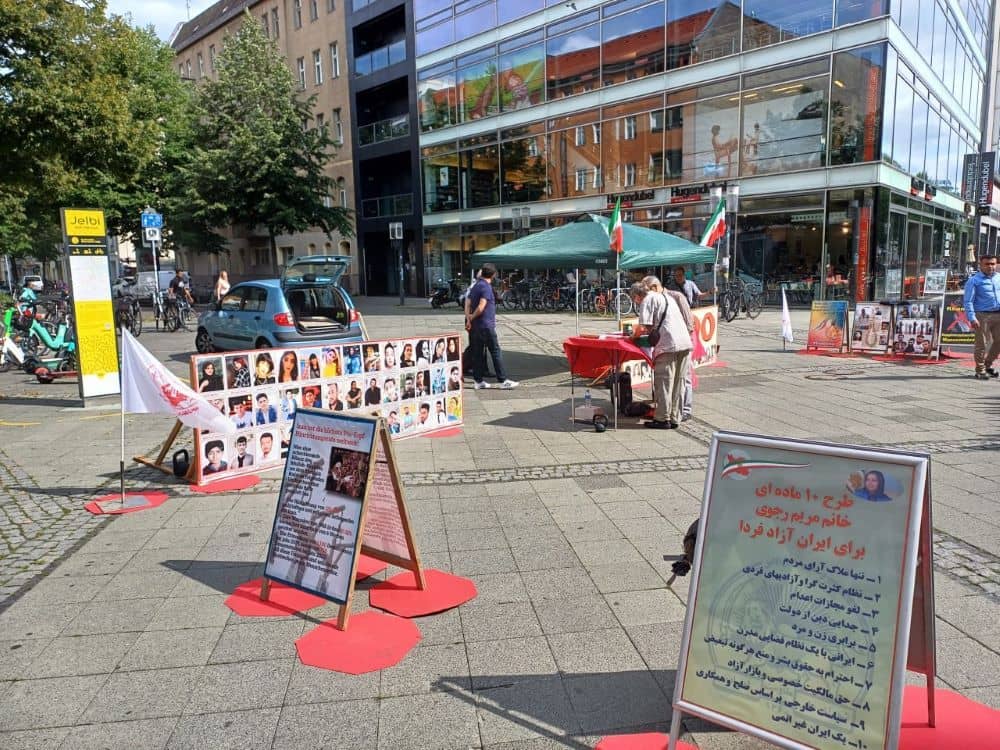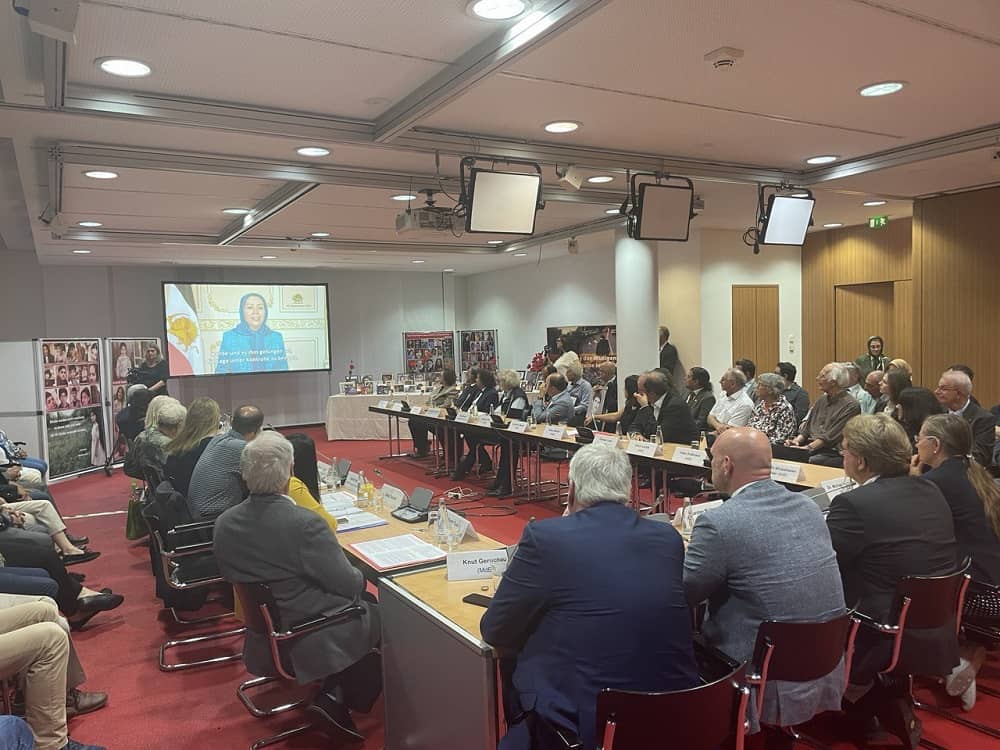
On September 28, 2023, a conference convened in Berlin, bringing together representatives from various factions of the Federal Parliament. The central theme of this gathering was to extend support to the ongoing uprising among the Iranian people and to endorse the Ten-Point Plan introduced by the Iranian Resistance.
This event, titled “Iran: One Year after the Popular Uprising,” attracted a notable roster of attendees, including members of the Bundestag, the German Federal Parliament, who openly expressed their solidarity with the aspiration for a democratic, secular, and nuclear-free Republic of Iran.
The conference featured participation from diverse parliamentary groups, encompassing the Christian Democratic Union of Germany (CDU), Christian Social Union (CSU), Free Democratic Party (liberal), and Die Linkspartei (left-wing). Prominent figures from the Federal Parliament who graced the occasion included Mrs. Elisabeth Winkelmeier-Becker, Chairwoman of the Federal Parliament’s Legal Committee; Mr. Carsten Müller, a senior member of the Judiciary Committee; Dr. Michael Meister; Diana Stöcker; Jens Peick; Knut Gerschau; Thomas Lutze; Gökay Akbulut; and Alexander Föhr.
The event also welcomed Ms. Stefanie Bung, Deputy Chair of the Christian Democratic Parliamentary Group in the Berlin Parliament, along with Mr. Martin Patzelt, a former Federal Parliament representative and co-chair of the German Solidarity Committee for a Free Iran.
Taking the podium as the keynote speaker, Mrs. Maryam Rajavi, the President-elect of the National Council of Iran (NCRI), stated, “Over the past year, Khamenei marshaled all of the regime’s military, intelligence, and political resources in a futile endeavor to suppress the society, but his efforts fell short. The society remains steadfast in its resistance against the regime, with the potential for another nationwide uprising lurking at every turn. The regime’s repression units faced relentless resistance during the anniversary of the uprising, executing 400 anti-repression operations. Furthermore, the regime could not quell its inherent instability.”
Conference in Berlin, “#Iran: One Year After the Popular Uprising”
— Maryam Rajavi (@Maryam_Rajavi) September 29, 2023
Europe’s political and economic interests are best served by staying away from the clerical regime and standing with the people of Iran#IranRevolution pic.twitter.com/zTvR3lAcgt
“Despite the enduring factors that triggered uprisings in 2017, 2019, and 2022, the Iranian regime and its allies attempt to feign normalcy, asserting that uprisings are a thing of the past, and they have the situation under control. This is a perilous miscalculation, one that unfortunately several European governments are making in unison. Consequently, some governments adopt a passive stance toward the regime’s acts of terrorism and hostage-taking, instead of adopting a resolute posture.”
Mrs. Rajavi called upon the international community to take a firm stance against the clerical regime, demanding the following actions:
- Recognition of the Iranian people’s right to resist, as enshrined in the German Constitution.
- Inclusion of the IRGC on the EU’s list of terrorist organizations.
- Activation of the trigger mechanism, in accordance with UN Security Council Resolution 2231, by the European Troika, targeting the mullahs’ nuclear program.
- Advocacy by Germany and the European Union for designating the regime as a global threat to peace and security under Chapter VII of the UN Charter.
MP Carsten Müller underscored, “We must expose the severe oppression orchestrated by the Iranian regime to the public eye and exert pressure against it. The Revolutionary Guard (IRGC) constitutes a terrorist criminal organization. Reports of strategic infiltration by the Iranian regime’s propagandists are alarming and warrant thorough investigation. It is unacceptable for advocates of the clerical regime to hold influential positions in the German Foreign Ministry. If this is indeed the case, we should not be surprised by occasional accusations against the National Council of Resistance of Iran. Iran presents us with an exceptionally ruthless and highly organized regime, employing a variety of means, including extortion, hostage-taking, human trafficking, and, as witnessed, deploying terrorists under diplomatic cover.”
MP Diana Stöcker also emphasized, “Since the beginning of this year, 520 individuals have faced execution in Iran, with the exact toll remaining unknown. We, in Germany and across the globe, cannot stand idly by in the face of these atrocities. Implementing comprehensive sanctions and designating the Revolutionary Guard as a terrorist organization are impactful measures yet to be adopted by the European Union. If we stand against dictatorship, we must actively seek solutions. Personally, I find the Ten-Point Plan proposed by the National Council of Resistance to be highly compelling. This plan garners recognition not only within Iranian communities in Germany but also on an international scale, offering a fundamental framework for a democratic constitution in Iran. That is why I am committed to supporting this democratic resistance.”
Katrin Bornmüller, Honorary President of the International Society for Human Rights in Germany, stressed, “In 1988, a brutal massacre claimed the lives of 30,000 opponents of the Iranian regime. Astonishingly, one of the judges from that period now holds the presidency in Iran. The residents of Ashraf-3 can bear witness to these heinous crimes. The Iranian regime is determined to eliminate these witnesses at any cost. Therefore, it falls upon democratic nations internationally to safeguard these witnesses.”
During the Berlin conference, a group of former political detainees and families of victims of the 1988 massacre shared their firsthand accounts, shedding light on the regime’s atrocities within Iran’s prisons.
#Berlin– #Iran meeting with German MPs: @Maryam_Rajavi names the demands: Recognize the right of the Iranian people to resist, as outlined in the German Constitution, Include the IRGC on the EU's list of terrorist organizations, Activate the trigger mechanism against the mullahs'… pic.twitter.com/sBUogm6PAw
— Javad Dabiran (@JavadDabiran) September 30, 2023
Note: The speeches presented at the conference have been translated from German to English for this rendition.


